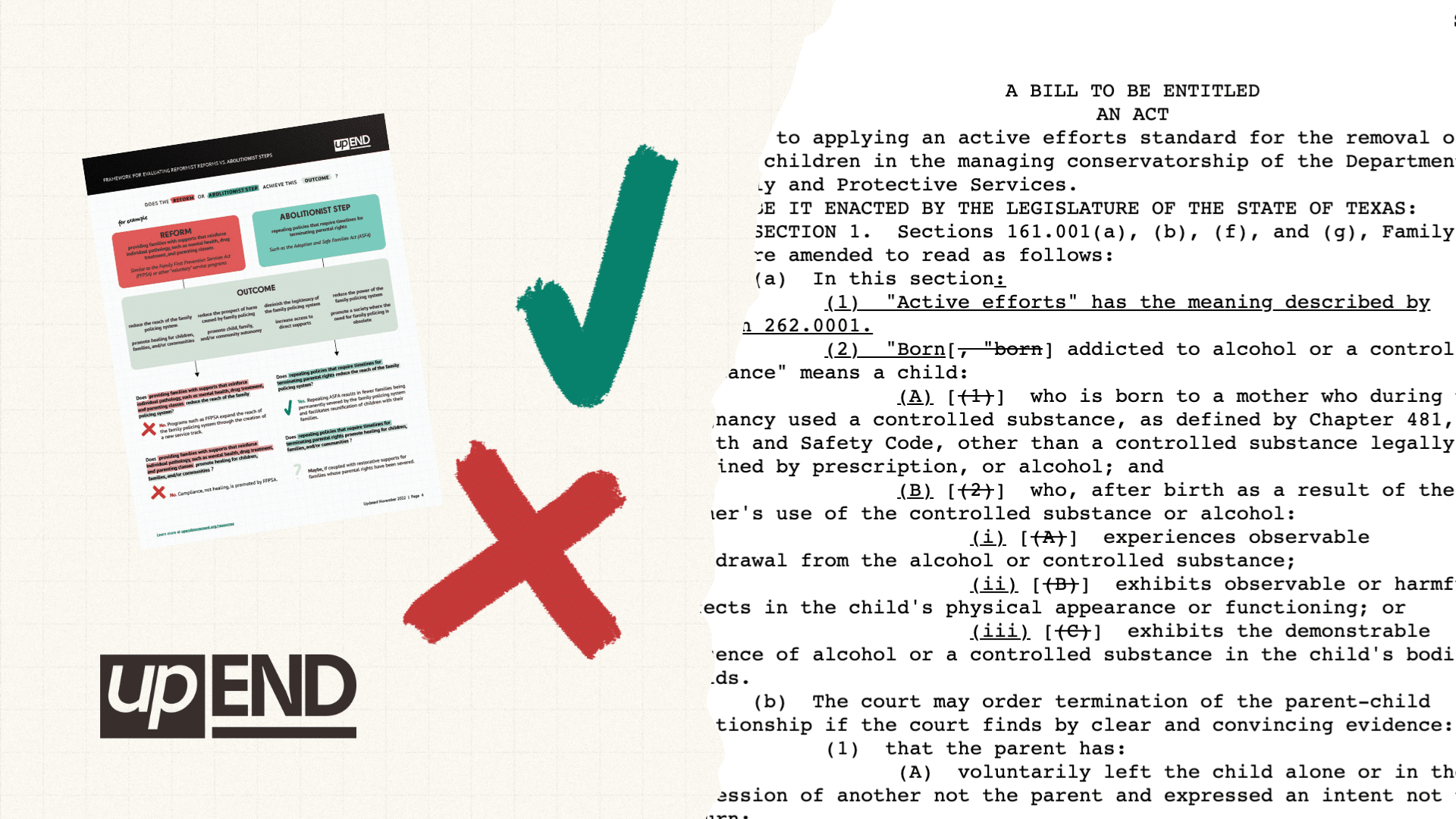Evaluating Texas’ “Active Efforts” Reform Using an Abolitionist Framework
February 6, 2025
February 6, 2025

Proposed Texas Senate Bill 620 would amend the Family Code by replacing all references to “reasonable efforts” with “active efforts” to reunify families separated by the family policing system and establishing a clear definition of the term.
We acknowledge that SB 620 may reduce some harms currently inflicted by the child welfare system, and we appreciate the intention behind efforts to strengthen family support. However, we remain deeply concerned that forcible separations will continue under this policy. As we have seen with other reform efforts—such as blind removals—these changes often result in minimal systemic shifts and disproportionately benefit White children rather than Black and Indigenous children.
The Indian Child Welfare Act (ICWA), for example, has been in place for decades, yet Indigenous children remain the most overrepresented population in the child welfare system nationwide. While some states have seen minor improvements, the fundamental structures that perpetuate family separation and surveillance remain intact.
Additionally, we question how the state will ensure that these newly defined “active efforts” are meaningfully implemented. Statewide child welfare agencies may assert that they already provide such services, but without rigorous checks and balances, there is little accountability to guarantee that families genuinely receive the support they need. Who will oversee the verification of these efforts? What mechanisms will be in place to ensure that families receive the full breadth of support outlined in the bill? Without clear answers to these questions, we fear that SB 620 may ultimately function as a symbolic reform rather than a transformative shift in child welfare policy.
Despite these concerns, we recommend that representatives support SB 620, as it represents a potential step toward mitigating some harm within the system. However, we urge them to recognize that this bill does not fundamentally shift the power of the child welfare system, promote true healing for families, or increase their access to direct supports.
Some of the changes we advocate for at upEND include:
To further explore how child welfare reforms can move us toward a society that better supports children, families, and communities, review our framework tool, which provides guidance on evaluating such reforms. Additionally, we recommend reading Abolitionist Steps to Build a Better World by Maya Pendleton and Alan Dettlaff, which may help inform your approach to future legislative efforts.